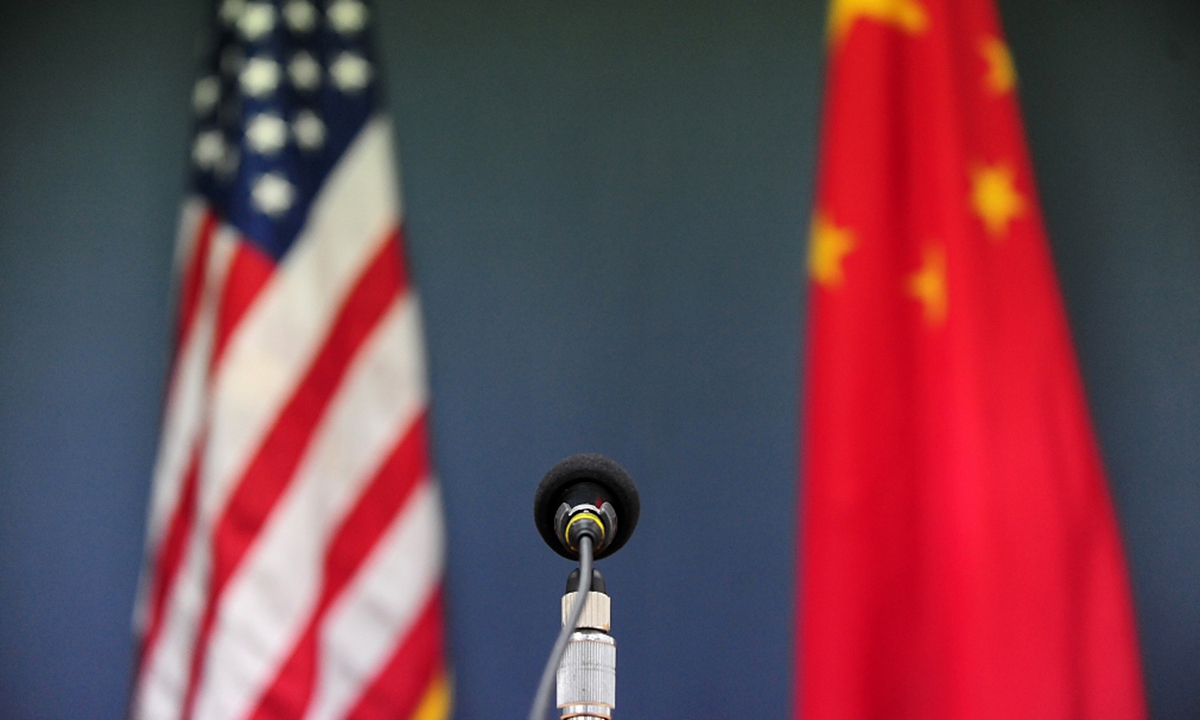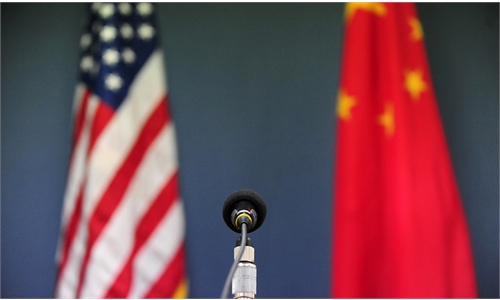China gaining more confidence on equal trade talks with the US: Global Times editorial

China US
Chinese Vice Premier Liu He and US Trade Representative Katherine Tai held a video call on Saturday. The press briefing released by the Chinese side shows that the two sides talked about three aspects: China-US economic and trade relations, implementation of the China-US economic and trade agreement, and resolving each other's legitimate concerns through consultation.From the phone conversation between the Chinese and US heads of state on September 10, to the meeting between China's top diplomat Yang Jiechi and US National Security Advisor Jake Sullivan on Wednesday, to the call between Liu and Tai, China-US relations have shown some tendency of easing. The Biden administration has shown some active signs in resolving disputes between the two countries through consultations.
However, before the call with Liu, the US side said this is a "test" whether direct engagement with China would help secure Washington's objectives. In addition, the readout of the US side after the call claimed that Washington expressed its concerns, "relating to China's state-led, non-market policies, and practices that harm American workers, farmers, and businesses."
The US has eased its posture in the talks, but its general stance remains the same: Holding up a big stick, it still puts forward its demands and continues to maintain coercion against China.
The serious conflict between China and the US began around trade. In 2018, the Trump administration imposed significant tariffs on imports from China, launching a full-scale trade war with China. After that, the conflict between the two countries has expanded to broader areas, including technology and politics. The high tariffs imposed by the previous US administration harmed both Beijing and Washington. Thus, it has led to widespread opposition from the US business community and consumers. This question looms large: will the Biden administration take real action on lifting tariffs and removing Chinese companies from the US Entity List? The answer to this will be a touchstone of whether it is truly interested in easing China-US relations.
The Office of the US Trade Representative last week proposed it would reopen a process for US companies to seek exemptions from tariffs. While it is still unknown how many Chinese goods imported by US companies will be exempt from the punitive tariffs in the end, it is obvious that the plan is limited and doesn't cover all. Therefore, it will be far from enough. The Biden administration has clearly shown its attitude of continuing to use the already imposed tariffs as leverage and a big stick. They now keep on labeling China's basic economic system and industrial policies as "state-led" and "authoritarian." They claim that China's "non-market practices" are hurting US businesses and workers. They are refusing to abandon their attempts to "transform" China's economic system.
To put it bluntly, the US wants to weaken the dynamics and competitiveness that is independently formed in China's economy. It wants to dismantle China's economic sovereignty. It seeks to make the Chinese economy unilaterally serve US interests, tear the Chinese economy up and make it reintegrate into the supply chain which is clearly dominated by the US. With Washington's wishful thinking, Beijing should not develop any high technology either. It should instead allow its competitiveness to sink and remain at the low end of the spectrum, which can ensure the long-term security for the US' leading position in the overall technological sector.
However, it has been three and a half years since the US started its trade war against China. Washington has not crushed the Chinese economy. Instead, China's economic strength and ability to conduct international trade have only grown. After this battle, plus the performance during COVID-19, Chinese society has a new understanding of the US as a "paper tiger". Our national confidence has grown stronger. Today, even the worst Washington policy toward China has lost its deterrent effect on Chinese people.
China will never dismantle itself as certain sectors of the US are demanding. What we can and are willing to do is to seek the greatest possible sharing interests between China and the US. We want to explore and build a mutually beneficial and win-win system for both sides under the true international rules, not the rules unilaterally defined by Washington. The development of China and the US is good for both countries. This is what Chinese society sincerely wants to see. The two countries should compete benignly. Neither should engage in intrigue, attacks, or coercion against the other.
The US side must understand that the fundamental reason for China's rapid development has everything to do with the hard working nature of the Chinese people. This includes both the roots of Chinese culture and the rhythms that are naturally occurring at this stage of development.
The Chinese people want a better life, and the government has a strong sense of mission to improve people's livelihoods. These all contribute to the dynamic of China's economic development. They are executed with Chinese characteristics. This means it is simply impossible for any attempt to stop or change the logic of China's economic development from outside forces.
The Chinese people should also realize that the US' China policy is shaped by geopolitics. When it claims to care about China's "human rights," it does not accept the Chinese people's collective prosperity. From a geopolitical perspective, Washington refuses to allow China to become powerful. This attitude is deep-rooted. It is particularly important that China and the US strengthen consultations. However, the China policy of both the current and previous administrations has no fundamental differences. The current political atmosphere in Washington does not allow for changes either. We must keep a sober mind toward this reality.
We must do our things well and make the US fully understand that its tough China policy will not yield any desired results. It will only weaken itself in the long term. It will ultimately do no good to solve the US' main strategic concerns. The current open gestures of the Biden administration are undoubtedly the result of China struggling and meanwhile proving its continuous development ability. This successful strategy needs to be sustained without any doubts.

